The India Dilemma
An increasingly undemocratic regional power is a necessary but unreliable partner.
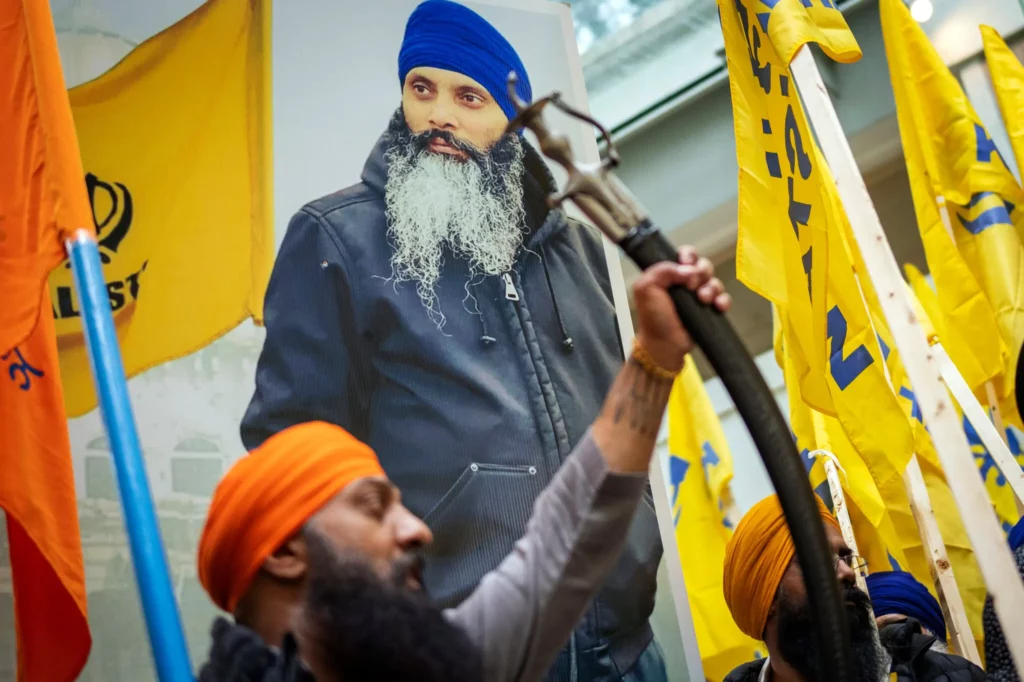
The Economist (unsigned) (“If India ordered a murder in Canada, there must be consequences“):
For years, India objected to Western strategists lumping it together with its violent and chaotic neighbour in the phrase “Indo-Pakistan”. Now recognised as a fast-growing giant and a potential bulwark against China, India claims to have been “de-hyphenated”. Yet the explosive charge aired this week by Justin Trudeau suggests that diplomatic recalibration may have gone too far. Canada’s prime minister alleges that Indian agents were involved in the murder in Vancouver of a Canadian citizen sympathetic to India’s Sikh separatist movement. India has long been accused of assassinating militants and dissidents in its own region; never previously in the friendly and orderly West. And though India calls the victim, Hardeep Singh Nijjar, a terrorist, and had offered a reward for information leading to his arrest, he had rebuffed Indian allegations linking him to separatist violence.
India denies everything. But Canada is reported to have shared intelligence about the murder with its allies in the “Five Eyes” pact. None appears to have questioned it. Shortly after Mr Trudeau levelled the charge in Canada’s parliament, America and Britain released cautiously supportive statements, urging India to co-operate with a Canadian probe. The killing, by two unknown gunmen outside a Sikh temple in June, followed a spike in both Sikh separatist activity and at times heavy-handed Indian suppression of it.
The row, which has involved tit-for-tat expulsions of Indian and Canadian diplomats, could escalate. Mr Trudeau faces domestic pressure to reveal evidence of Indian involvement in the killing. A criminal investigation is under way. The Canada-India relationship, already blighted by Indian suspicions of separatist support in the 770,000-strong Sikh diaspora in Canada, has deteriorated. America and its allies will hope the rot stops there. Yet even if it does, they should consider this a wake-up call about the government of Narendra Modi—and their own eagerness to overlook its too-frequent abuses.
On its own turf it has muzzled the press, cowed the courts and persecuted minorities, even though none is a threat to it. The alleged assassination in Canada, too, appears gratuitous as well as wrong. The movement to create an independent Sikh nation (known as Khalistan) led to the killing of tens of thousands of people in India in the 1980s and 1990s, but has since been little more than an idle talking-point in the Sikh diaspora, even as India’s ability to police it by conventional means at home has improved.
Making martyrs of separatist leaders is a gift to their beleaguered cause. This might be considered typical of an Indian government that, for all its recent swagger on the world stage, remains dogged by feelings of insecurity. It is a feature of India’s rapid rise. The country is almost invariably weaker than its leaders publicly proclaim, yet stronger than they privately fear—and that mismatch is a recipe for miscalculations of this kind. Mr Modi, a probable shoo-in for re-election next year, should know that confident countries entrust their security to the rule of law.
India’s Western friends cannot count on that, however. Hitherto reluctant to condemn Mr Modi’s excesses, they have maintained a fiction that their partnership with India is based on shared democratic values, not interests. This has laid them open to charges of hypocrisy. It also seems likely, in the light of Mr Nijjar’s demise, to have emboldened Mr Modi. If the investigation confirms Indian involvement in this crime, it is time for a tougher line. Strategic partners do not air all their dirty linen in public, and neither do they murder each other’s citizens. Canada’s allies must join it in making that clear to Mr Modi.
NYT (“U.S. Provided Canada With Intelligence on Killing of Sikh Leader“):
American spy agencies provided information to Ottawa after the killing of a Sikh separatist leader in the Vancouver area, but Canada developed the most definitive intelligence that led it to accuse India of orchestrating the plot, according to Western allied officials.
In the aftermath of the killing, U.S. intelligence agencies offered their Canadian counterparts context that helped Canada conclude that India had been involved. Yet what appears to be the “smoking gun,” intercepted communications of Indian diplomats in Canada indicating involvement in the plot, was gathered by Canadian officials, allied officials said.
While Secretary of State Antony J. Blinken has called on India to cooperate with the Canadian investigation, American officials have largely tried to avoid triggering any diplomatic blowback from India. But the disclosure of the involvement of U.S. intelligence risks ensnaring Washington in the diplomatic battle between Canada and India at a time when it is keen to develop New Delhi as a closer partner.
The United States did not learn about the plot, or evidence pointing to India’s involvement in it, until after operatives had killed the Sikh leader, Hardeep Singh Nijjar, allied officials said.
Two men fatally shot Mr. Nijjar, a Canadian citizen who had advocated independence for a Sikh-majority region of India, in the Vancouver area on June 18.
Before the killing, Canadian officials had told Mr. Nijjar that he was in danger. Several friends and associates of Mr. Nijjar said that he had been warned repeatedly about threats against him and had been cautioned to avoid the temple.
After his death, American officials told their Canadian counterparts that Washington had not had any advance information about the plot, and that if U.S. officials had they would have immediately informed Ottawa under the intelligence agencies’ “duty to warn” doctrine, according to two allied officials.
The officials, who spoke on the condition of anonymity to discuss what has become a diplomatic firestorm, said Canadian officials had offered a general warning to Mr. Nijjar, but had not told him that he was the target of an Indian government plot.
The United States routinely, and automatically, shares huge amounts of intercepted communications with its closest intelligence partners, including Canada. But the contextual information about the killing was shared deliberately as part of a package of various intelligence streams.
A spokesman for the White House declined to comment. U.S. officials were reluctant to discuss the killing because although Washington wants to assist Canada, a close ally, it does not want to alienate India, a partner with which it is hoping to expand ties as a counterbalance to China’s rising influence in Asia.
The accusation has created a diplomatic rift between Ottawa and New Delhi, leading each to expel the other’s intelligence officers and India to suspend visas for Canadians.
Nevertheless, the killing, and the alleged involvement of the Indian government, has shocked officials in Washington. While democratic countries conduct targeted killings in unstable countries or regions and the spy services of more authoritarian governments — namely Russia — orchestrate assassinations anywhere they choose, it is unusual for a democratic country to conduct a lethal covert action in another democracy.
While Modi was elected in more-or-less free and fair elections and seems quite popular, India is no longer a democracy in any meaningful sense of the word. It has had a severe crackdown on the basic freedoms of minority populations under Modi. Similarly, freedom of the press and political expression approaches autocratic levels.
Still, a political assassination on Canadian soil is a brazen, reckless act. I would be shocked, indeed, if the Canadian and US government went public with this allegation if the evidence were less than overwhelming.
At the same time, both governments see India as a necessary partner in global competition with China. Given that Modi isn’t going anywhere, the options for retribution are modest, indeed.


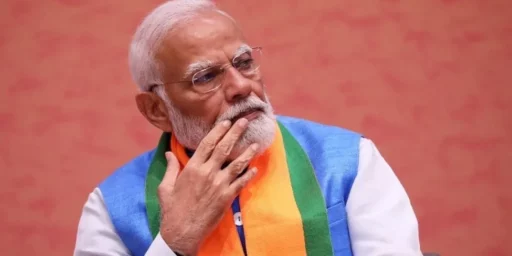
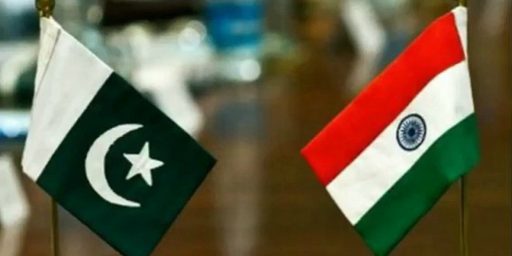
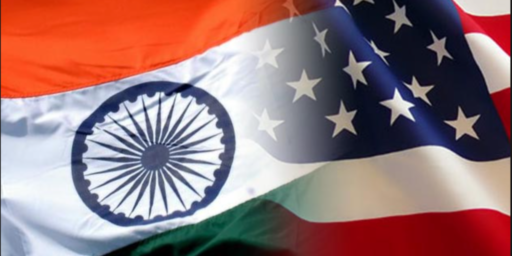
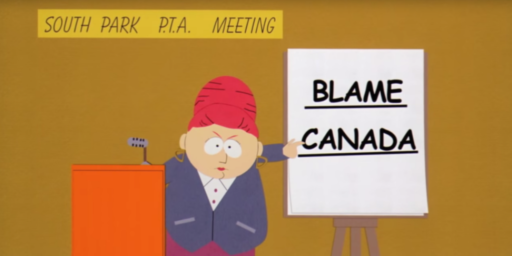
The counterpoint to this seems to be that the Indian economy has improved with Modi in charge. However, looking at the numbers (link) it doesnt really pan out. They have lost manufacturing jobs, investment has not increased at the rate promised with private investment now 22% of GDP while it was 31% in 2010. Investors claim they are hesitant to invest as they know Modi uses the government to reward and punish people, especially the tax authority. However, he keeps promising that next year will be better and he keeps the majority happy with his actions against the minority groups in the country and some efforts towards spreading indoor plumbing.
Steve
https://foreignpolicy.com/2023/06/23/modi-india-economy-success-story/
@steve: It’s what I refer to as Jim Crow governance. Distract the populace by ginning up prejudice and incidents with minority populations, reward the government agents for doing so, all to give their wealthy and powerful sponsors a free hand to take the spoils.
The most effective ‘retaliation’ will be private sector investors losing confidence in the stability of the Indian government. I keep seeing all these optimistic predictions of a rising India challenging China as the great engine of production and I think, nope, probably not. Much like Russia they have a little problem with competent self-government. Like Xi in China we may see Modi strangle the goose that lays the golden eggs, because autocracy isn’t actually good for capitalism, not in the long run.
Add Canada and Australia, and you know what you have? 65 million people who produce more value than the 1.4 billion people of India. California produces more GDP with just 40 million people.
But it would be helpful if India built out a capable navy to counter China in the Indian Ocean. That would be swell.
What’s old is new again.
A once popular notion is coming to an end: That after the Cold War, we would no longer need to consider tradeoffs between our geo-strategic interests and our moral views of good governance.
This subheading could be used for any number of countries. Drop the word “regional” and it could describe the US.
Each country seems to have its own flavor, but the pervasiveness of it suggests common root causes — and that is definitely suggests and not shows.
I don’t know enough about the last time fascism started spreading through the world (or even if there was another widespread shift towards fascism after the lead up to WW2 for that matter*), so I’m just going to blame calcifying capitalism with a side of refugee crisis prompted by climate change and crop failures.
——
*: I worked with a woman who was raised mostly in North Carolina, and had been taught that there really weren’t very many slaves in North Carolina, that was more of an Alabama/Mississippi thing, and overstated there too. She was shocked when I pulled up census records, as it was just completely at odds with what she had learned.
I assume my education has similar gaps when it comes to the problems of “center-right governments.”